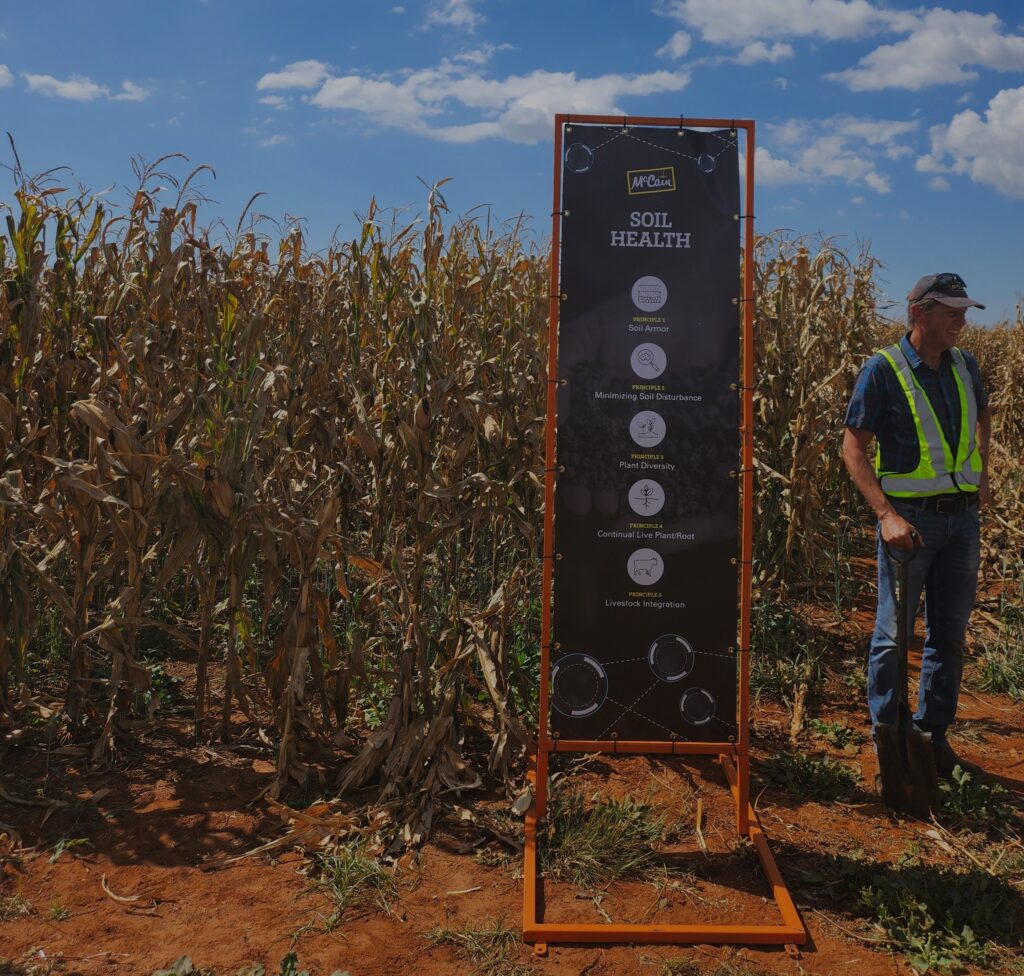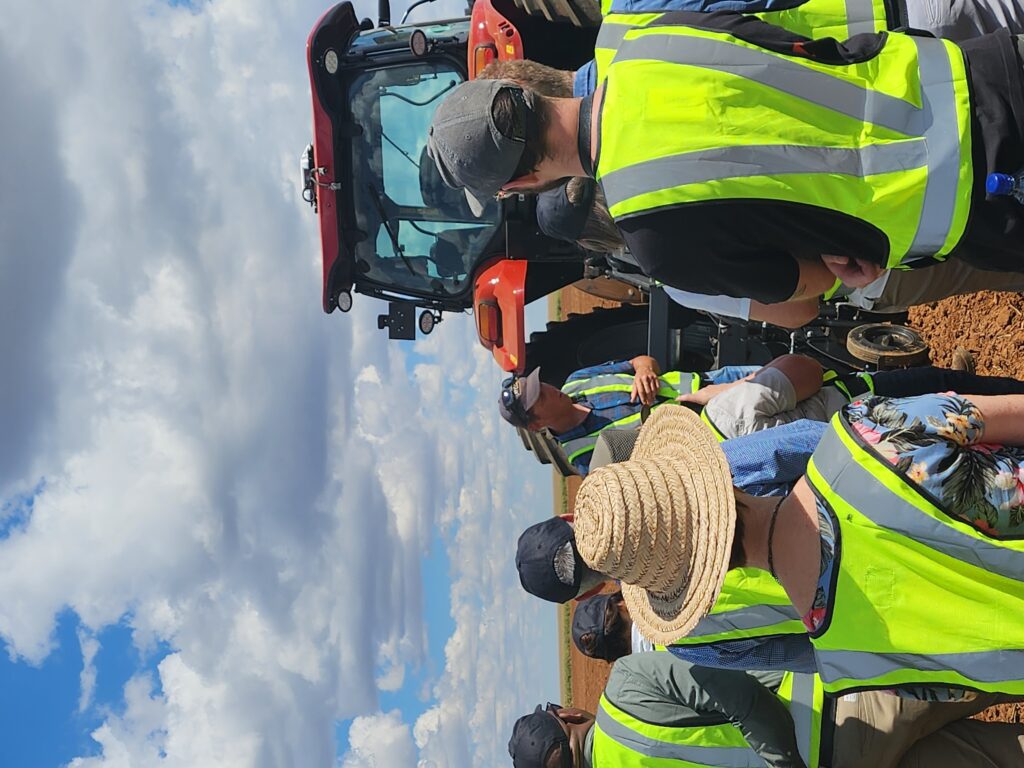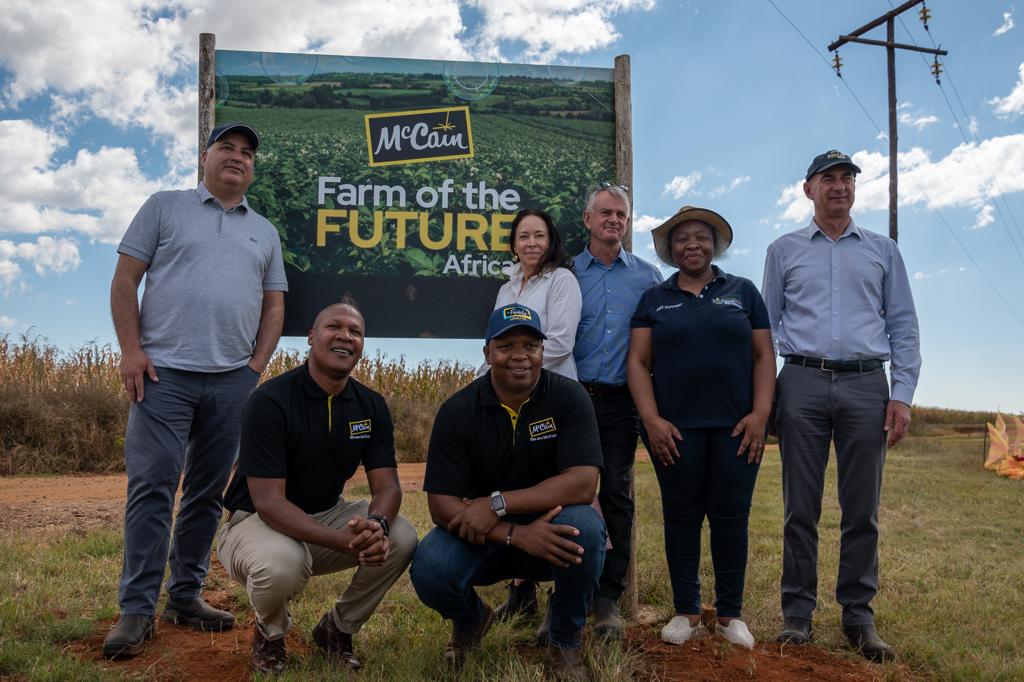McCain Foods Limited, one of South Africa’s leading frozen food manufacturers, has officially opened its Farm of the Future Africa in Lichtenburg, North West, the second of three locations planned by 2025. McCain’s Farms of the Future initiative, first launched in Canada in 2020, is aimed at gaining a better understanding of regenerative agricultural practices as well as their impact, costs and benefits. The regional farm is set to become a research hub that will focus on regenerative agriculture techniques for South Africa’s potato production industry, a sector that contributes approximately R 6.6 billion to the country’s GDP.
Regenerative agriculture encompasses an ecosystem-based approach to farming that strives to enhance farm resilience, yield and quality by improving soil health and biodiversity, and reducing the impact of synthetic inputs.
“The Farm of the Future Africa project reaffirms McCain’s commitment to the growth of South Africa’s agricultural and agri-processing industries,” says McCain Foods, Vice President, Global External Affairs and Sustainability, Charlie Angelakos. “Significant progress has been made since the unveiling of the farm last year, and we are proud to share these developments with all of our stakeholders, from farmers and local government representatives, to customers and partners. This flagship initiative not only showcases South Africa’s sector expertise but also the implementation of industry-leading regenerative agricultural practices that boost productivity and profitability, while accelerating sustainability.”
The farm will also serve as an effective platform for recruiting and training talent, in line with Agriculture, Land Reform and Rural Development Minister, Thoko Didiza’s, recent call for sector players to create mechanisms that will help the new generation of farmers succeed. Additionally, stakeholders will be granted access to the labs and facilities onsite, further facilitating the promotion of local research and development.

Comments, Unathi Mhlatyana, Managing Director, McCain Foods South Africa, “Our investment of R100 million into Farm of the Future Africa demonstrates our commitment to producing planet-friendly food and ensuring that sustainability is integrated into every touchpoint of our business’ value chain. Farm of the Future Africa will test and feature innovative processes and technologies, specifically tailored for the Southern Hemisphere, in a collaborative hive that will bring together academics, industry and technology partners and farmers, working together to reimagine the way we grow a potato – approaches that are better for farms and the planet.”
Wandile Sihlobo, the Chief Economist of the Agricultural Business Chamber of South Africa (Agbiz) and Farm of the Future Africa advisory board member, acknowledges the challenges the agricultural sector is currently facing and the steps needed to enable the industry to thrive. “Potatoes are an essential staple for South Africans and an increase in the local production of sustainable spuds will have a tremendous impact on national food certainty, direct and indirect employment and the livelihoods of Mzansi’s farmers. It will also assist us in effectively combating the effects of climate change, ensuring security of supply.”
In line with McCain’s Resource-Efficient Operations sustainability pillar, solar energy is being effectively used to power the farm’s main office and various machine sheds. The company is also investigating opportunities to utilise solar technology to aid in the continuous deployment of field irrigation.

“Our farmers are at the heart of our business,” says Mhlatyana.” By implementing the Farm of the Future Africa project, we will have the capability to conduct cutting-edge research that can maximise yields, promote economic growth and strengthen sustainability. Our goal is to share this valuable knowledge with our farming partners as we embrace and prepare for our future, together.”
McCain has made a global commitment to implement regenerative agricultural practices across 100% of its potato acreage by 2030 as part of its sustainability goals.









